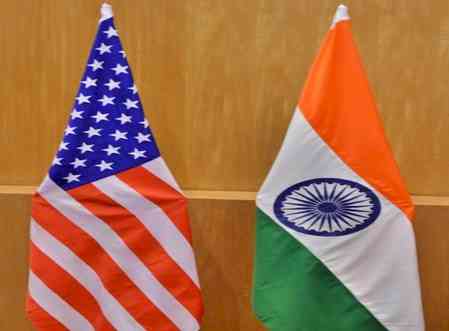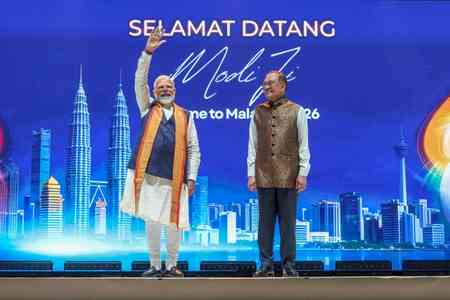'US must rethink India as ally not competitor'
As US–India relations enter a more delicate phase, Washington’s increasingly coercive posture risks alienating a partner whose ascent could be one of America’s greatest strategic advantages in the 21st century.

New Delhi, Aug 18 (IANS) As US–India relations enter a more delicate phase, Washington’s increasingly coercive posture risks alienating a partner whose ascent could be one of America’s greatest strategic advantages in the 21st century.
More than two centuries ago, George Washington urged the nation to “observe good faith and justice toward all nations".
Today, that wisdom resonates in a world reshaped by multi-polarity, where trust—not dominance—is the currency of enduring alliances. India is not merely an emerging economy.
It is the world’s most populous democracy, a $4-trillion powerhouse in the making, a pioneer in space and digital infrastructure, and a respected voice in the Global South, Milinda Moragoda former Sri Lankan cabinet minister, High Commissioner to India, and founder of the Pathfinder Foundation has written in an English daily.
For years, the US–India relationship has been hailed as a defining partnership of the century; two vibrant democracies, diverse in culture but united by shared values of pluralism, innovation, and open markets.
Yet the tone has shifted.
Suspicion now shadows a bond once built on mutual respect. At the heart of this drift lies a flawed assumption in Washington—that India can be pressured into compliance or “managed” into alignment.
This is not only misguided; it’s strategically self-defeating. Its commitment to strategic autonomy is not negotiable—it is a deeply rooted peculiar national character of integrity.
Attempts to dilute that autonomy through transactional diplomacy or punitive measures will backfire.
Recent US moves—trade tensions, threats of secondary sanctions, and restrictive tech policies—reflect a shift toward short-term leverage rather than long-term partnership.
Disagreements are inevitable, but coercion erodes goodwill and invites resistance. India’s rise is not a threat to American interests; it is a strategic multiplier.
In the Indo-Pacific, India’s role in maritime security and supply-chain resilience is indispensable. In global governance, its push for reform aligns with US goals.
In technology, the synergy between Silicon Valley and Bengaluru is already reshaping innovation. If Washington continues down this path of pressure, it risks losing a partner with unmatched strategic compatibility.
India has options—Europe, ASEAN, South–South alliances—and will pursue them if cornered. The relationship is not beyond repair, but it demands a reset: one that replaces the impulse to manage with a commitment to empower.
George Washington warned against foreign policy built on habitual fondness or hatred. Today, that means rejecting dominance and embracing balance, respect, and shared purpose.
For the US, the choice is clear—embrace India’s rise, or risk strategic isolation in a world that rewards trust over control.
--IANS
sktr/pgh



 IANS
IANS 










